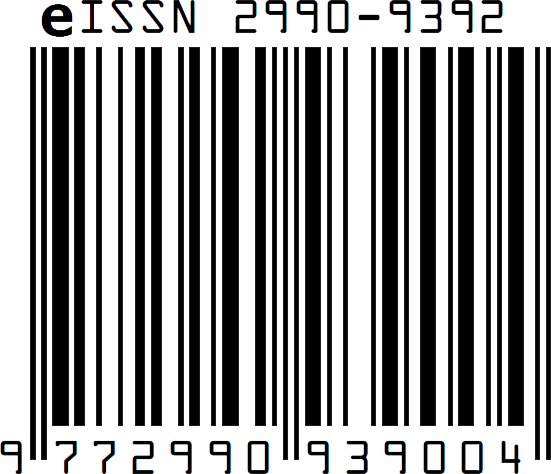INTEGRATION OF KNOWLEDGE AT THE KULLIYYAH OF ENGINEERING
DOI:
https://doi.org/10.31436/ijiok.v1i1.8Keywords:
Integration of knowledge, KOE, ethical responsibilityAbstract
The Kulliyyah of Engineering (KOE) at the International Islamic University Malaysia (IIUM) has been one of the leading institutions in the country since 1994, offering engineering education to students from all over the world. With its wealth of experience, the KOE has established different strategic plans over the years to improve its academic standards. The faculty provides undergraduate and postgraduate programs in various fields of engineering, such as chemical, civil, electrical, mechanical, manufacturing, mechatronics, and computer engineering. Despite having an excellent academic curriculum, there is still a significant gap in the integration of knowledge across different courses, which could hinder the overall learning experience of the students.
To bridge this gap and provide a more comprehensive approach to education, there is a need to integrate knowledge from various courses and disciplines. This approach will enable students to understand the relationships between different areas of study and better equip them to solve complex problems in the real world. Integrating knowledge from various courses will not only improve the overall quality of education but also increase the employability of graduates as they will possess a diverse set of skills that are highly sought after in today's job market.
ABSTRAK: Kulliyyah Kejuruteraan (KOE) di Universiti Islam Antarabangsa Malaysia (IIUM) telah menjadi salah satu institusi terkemuka di negara sejak tahun 1994, menawarkan pendidikan kejuruteraan kepada pelajar dari seluruh dunia. Dengan pengalaman yang kaya, KOE telah menetapkan pelan strategik yang berbeza selama bertahun-tahun untuk meningkatkan standard akademiknya. Fakulti ini menyediakan program sarjana dan siswazah dalam pelbagai bidang kejuruteraan, seperti kejuruteraan kimia, awam, elektrik, mekanikal, pembuatan, mekatronik, dan kejuruteraan komputer. Walaupun mempunyai kurikulum akademik yang cemerlang, terdapat jurang yang besar dalam pengintegrasian pengetahuan di antara kursus yang berbeza, yang boleh menghalang pengalaman pembelajaran keseluruhan pelajar.
Untuk menyelesaikan jurang ini dan memberikan pendekatan pendidikan yang lebih komprehensif, terdapat keperluan untuk mengintegrasikan pengetahuan dari pelbagai kursus dan disiplin. Pendekatan ini akan membolehkan pelajar memahami hubungan di antara bidang pengajian yang berbeza dan mempersiapkan mereka dengan lebih baik untuk menyelesaikan masalah kompleks dalam dunia sebenar. Mengintegrasikan pengetahuan dari pelbagai kursus tidak hanya akan meningkatkan kualiti pendidikan secara keseluruhan tetapi juga meningkatkan kebolehpasaran graduan kerana mereka akan mempunyai set kemahiran yang pelbagai yang sangat dicari dalam pasaran kerja hari ini..
References
Aminuddin, H., Asmawati, S., Norhasni, Z. A., Habsah, I., & Haziyah, H. (2010). The Role of Islamic Philosophy of Education in Aspiring Holistic Learning. Procedia Social and Behavioral Sciences, 5, 2113–2118. DOI: https://doi.org/10.1016/j.sbspro.2010.07.423
Halstead, M. J. (2004). An Islamic Concept of Education. Comparative Education, 40(4) special issue 29, 517-529. http://dx.doi.org/10.1080/0305006042000284510. DOI: https://doi.org/10.1080/0305006042000284510
Najwan, S., & Zehavit, G. (2017). Islamic Education and the Challenge of Democratic Citizenship: A Critical Perspective. Discourse: Studies in the Cultural Politics of Education, 38(6), 807-822. DOI: https://doi.org/10.1080/01596306.2016.1191011
Islam, M. (2016) Importance of Girls’ Education as Right: A Legal Study from Islamic Approach. Beijing Law Review, 7, 1-11. http://dx.doi.org/10.4236/blr.2016.71001. DOI: https://doi.org/10.4236/blr.2016.71001
Maali, M., & Jassim, A. (2019). Religious Tolerance in Secondary Islamic Education Textbooks in Kuwait. British Journal of Religious Education, 41(4), 422-434. DOI: https://doi.org/10.1080/01416200.2019.1585329
Miftachul, H., Jibril, Y., Kamarul, A. J., & Gamal, A. N. Z. (2016). Al-Zarnuji’s Concept of Knowledge (‘Ilm). Sage Open, 3,1-13. http://dx.doi.org/10.1177/2158244016666885. DOI: https://doi.org/10.1177/2158244016666885
Azam, M., & Amin, M. (2011). The Concept of Acquired Knowledge: Its Reformation in the Discourse of Muslim Scholars. Revelation and Science, 1(3), 50-61. https://pdfs.semanticscholar.org/79f9/bdd7bdb61be9c924be8db0b52caeed9fd014.pdf.
] Mohammad, K. A. (2014). Perspectives on the Discourse of Islamization of Education. American Journal of Humanities and Social Sciences, 2(1), 43-53. http://dx.doi.org/10.11634/232907811402449. DOI: https://doi.org/10.11634/232907811402449
Sarfaroz, N., & Nadeem, M. (2011). Islamic Education and Islamization: Evolution of Themes, Continuities and New Directions. Journal of Muslim Minority Affairs, 31(1), 5-30. http://dx.doi.org/10.1080/13602004.2011.556886. DOI: https://doi.org/10.1080/13602004.2011.556886
Paya, A. (2015) A Critical Assessment of the Programmes of Producing Islamic Science and Islamisation of Science/Knowledge. International Studies in the Philosophy of Science, 29(3), 311-335. http://dx.doi.org/10.1080/02698595.2015.1179043. DOI: https://doi.org/10.1080/02698595.2015.1179043
Yasmeen, M. F. (2006). Contributions of Islamic Scholars to the Scientific Enterprise. International Education Journal, 7(4), 391-399. https://files.eric.ed.gov/fulltext/EJ854295.pdf.
Sidek, B., & Tareq, M. Z. (2015). Knowledge of Shariah and Knowledge to Manage ‘Self’ and ‘System’: Integration of Islamic Epistemology with the Knowledge and Education. Journal of Islam, Law and Judiciary, 1(1), 45 – 62.
Sidek, B., Mohamad, J. S., Tareq, M. Z., & Ridwan, H. (2018). Historical Development of Islamic Integrated Education in Malaysia Since 15th Century: Current Needs for The Globalized World. History of Education & Children’s Literature, 8(2), 9-30.
Linn, M. C. (2006). The Knowledge Integration Perspective on Learning and Instruction. In R. K. Sawyer (Ed.), The Cambridge handbook of: The learning sciences (pp. 243–264). Cambridge University Press. DOI: https://doi.org/10.1017/CBO9780511816833.016
Linn, M. C., & Eylon, B.-S. (2011). Science learning and instruction: Taking advantage of technology to promote knowledge integration. New York: Routledge. DOI: https://doi.org/10.4324/9780203806524
Downloads
Published
How to Cite
Issue
Section
License
Copyright (c) 2023 IIUM Press

This work is licensed under a Creative Commons Attribution-NonCommercial 4.0 International License.








